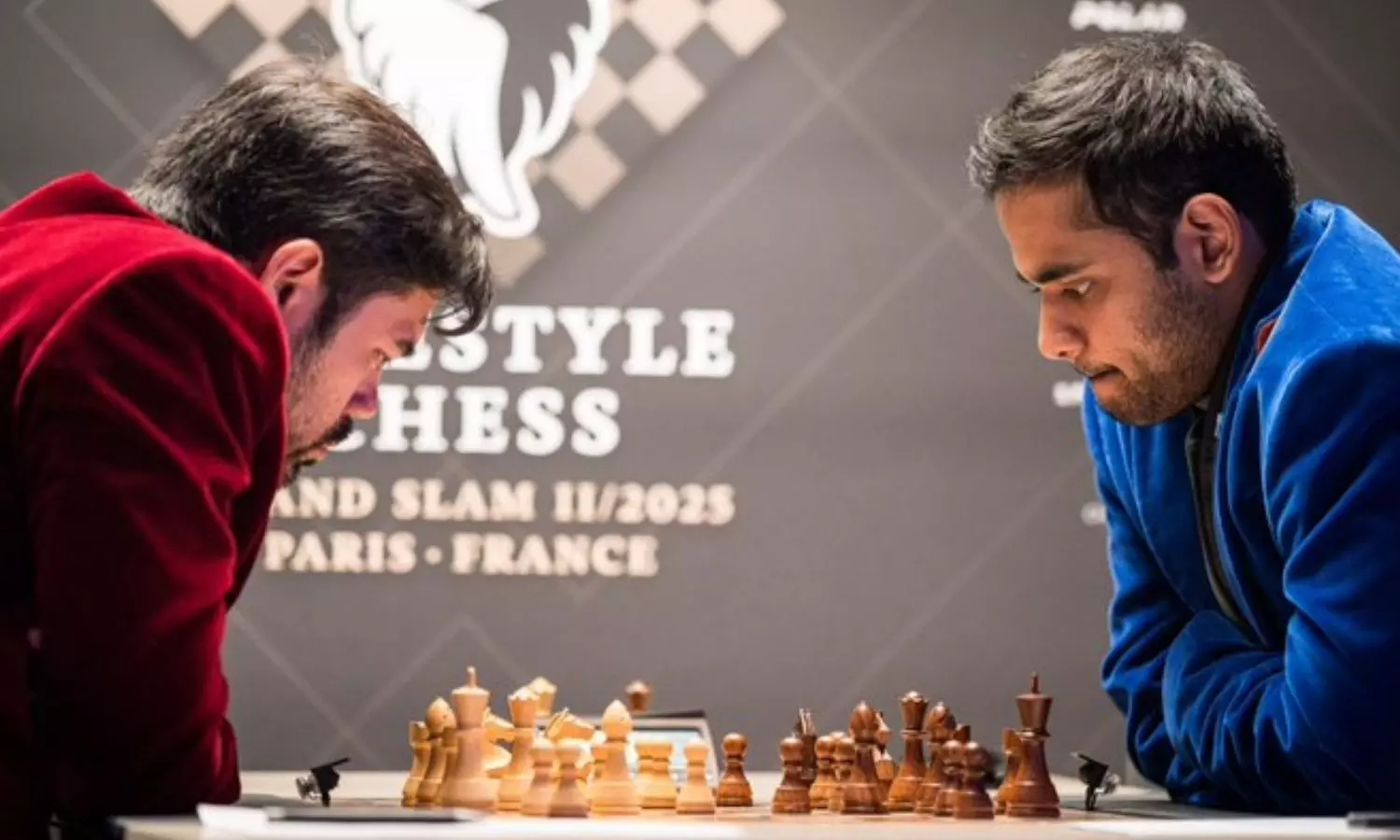Chess
Explained: What is Freestyle Chess?
Four Indian chess professionals are competing at the inaugural Fresstyle Chess Grand Slam Tour in 2025.

Arjun Erigaisi in action at the Paris Freestyle Chess Grand Slam. (Photo Credits: Chess.com_India)
For long, Chess has been perceived as the game of select intellectuals. While India did have its share of challengers, Viswanathan Anand well and truly transformed the landscape in the country.
And post the pandemic, the popularity has increased and with Gukesh D winning the World Chess Championship, the following has skyrocketed.
The sport itself is now evolving and widening its range by creating more opportunities for players at every level. Freestyle Chess is one of those new variants that has caught the attention of the chess world over the past year.
What is Freestyle Chess?
Freestyle Chess, also known as Fischer Random or Chess960, is a variant where the initial piece positions on the back rank are randomized, which encourages creativity and eliminates the need for memorized openings.
It was first introduced by former world chess champion Bobby Fischer in 1996 to reduce the emphasis on opening preparation, but it wasn't getting much attention in mainstream.
But now, 28 years later, this variant is getting a new new lease of life, especially after it caught the eye of the five-time world champion Magnus Carlsen of Norway a couple of years ago.
Now, in 2025, it has a full-fledged calendar, just like the classical chess circuit, and has attracted the world top players, including the reigning world champion Gukesh D.
The starting position and placement of pieces
As the name suggests, this variant followed the freestyle culture of the modern world, neglecting all the conventional norms and the same structure opening preparations, making it appealing to the top players.
However, there are certain rules one should remember before the game as there is a starting position which is randomly determined and set up, subject to certain requirements.
In this variant, the chess pieces that are not pawns are placed randomly on the back rank, following two basic rules:
- The bishops must be placed on opposite-color squares.
- The king must be placed on a square between the rooks
According to certain calculations based on the available positions for each of the eight pieces, there are 960 different starting positions, which can be used under the concept of Freestyle Chess.
The Grand Slam Tour
The first ever official tournament of Fischer Random Chess (Freestyle Chess) was held in Vojvodina, Yugoslavia, in 1996, and was won by Peter Leko with 9½/11, ahead of Stanimir Nikolić with 9/11.
It was later renamed Freestyle Chess, and an eight-player Freestyle Chess G.O.A.T. Challenge was created, which was the first major Chess960 tournament that used classical chess time controls.
This took place in Germany in the second week of February 2024, and the then world champion Magnus Carlsen won the tournament by defeating Fabiano Caruana in the finals.
Following the success of this tournament, five-time classical world champion Carlsen and tournament organizer Jan Henric Buettner launched the Freestyle Chess Grand Slam Tour in 2025.
This comprises five "Grand Slam" tournaments per year, and the winner of the overall tour will be awarded the title of Freestyle Chess Champion.
The first Freestyle Chess Grand Slam was held in Weissenhaus, Germany, in February 2025. The home favourite Vincent Keymer won the inaugural edition, while India's lone participant and reigning World Champion Gukesh finished eight.
Now, three more Indian players, R Praggnandhaa, Arjun Erigaisi, and Vidit Gujrathi, have joined Gukesh and are competing at the second Grand Slam of the year in Paris this week.
Freestyle Chess turns the game on its head and offers a new blend of unpredictability of the game. And based on early trends, chances are that the future of Chess could well be Freestyle.
